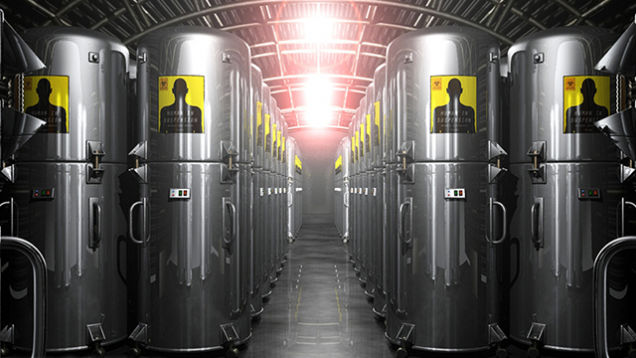
A 14-year-old girl dying of cancer won a historic court ruling to have her body cryogenically frozen so she can be awaken in years to come when a cure is found, BBC has reported.
The girl, who died in October, did extensive research on cryonics.
Her mother supported her decision while her father who was strongly against it, wrote a statement to the presiding judge saying: “Even if the treatment is successful and she is brought back to life in, let’s say, 200 years, she may not find any relative and she might not remember things.
“She may be left in a desperate situation – given that she is still only 14 years old – and will be in the United States of America where her body was to be stored.”
The young girl, whose identity has remained anonymous, then urged the high court to intervene.
Going by the alias, JS, she wrote: “I have been asked to explain why I want this unusual thing done. I’m only 14 years old and I don’t want to die, but I know I am going to.
“I think being cryo‐preserved gives me a chance to be cured and woken up, even in hundreds of years’ time. I don’t want to be buried underground.
“I want to live and live longer and I think that in the future they may find a cure for my cancer and wake me up. I want to have this chance.
“This is my wish.”
Justice Peter Jackson made the ruling in October after a private hearing at the family division of the London high court.
Jackson ruled that nothing about the case should be reported while she was alive because media coverage would distress her.
He visited her in the hospital, and was moved by “the valiant way in which she was facing her predicament”.
“It is no surprise that this application is the only one of its kind to have come before the courts in this country, and probably anywhere else.
“It is an example of the new questions that science poses to the law, perhaps most of all to family law … No other parent has ever been put in the position of JS’s father.”
The ruling, he said, was not about the rights or wrongs of cryonics but about a dispute between parents over the disposal of their daughter’s body.
“A dispute about a parent being able to see his child after death would be momentous enough on its own if the case did not also raise the issue of cryonic preservation.”
The court ruled that the mother of the girl, who supported the decision for her daughter’s body to be frozen, should have the final decision.
Shortly before her death in a London hospital, the judge granted JS her wish.
Her body was taken to a storage facility in the US where it has been frozen “in perpetuity” by a commercial company at a cost of £37,000.
She is one of only 10 Britons to have been frozen.
END

Be the first to comment